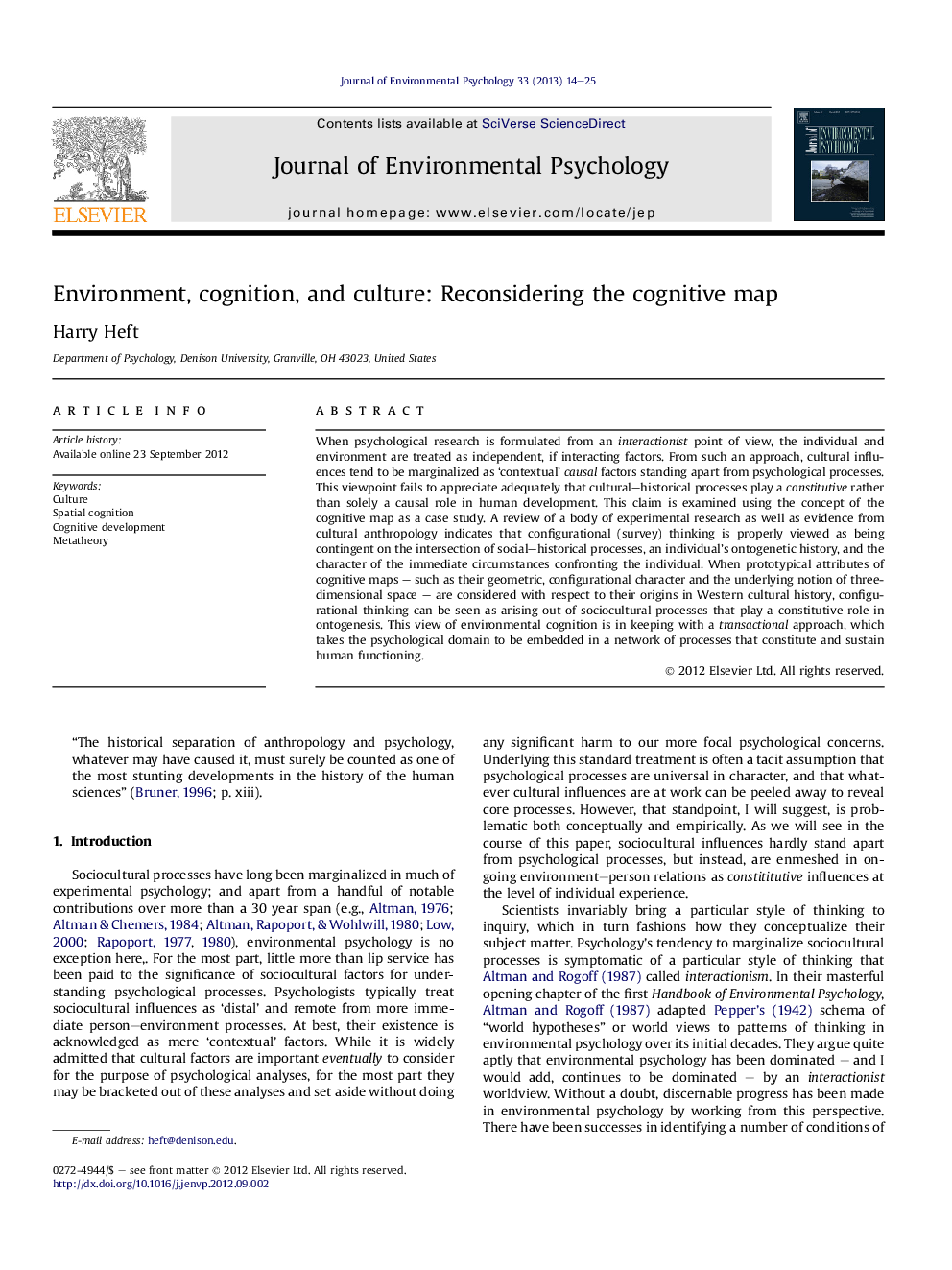| کد مقاله | کد نشریه | سال انتشار | مقاله انگلیسی | نسخه تمام متن |
|---|---|---|---|---|
| 885702 | 1471761 | 2013 | 12 صفحه PDF | دانلود رایگان |

When psychological research is formulated from an interactionist point of view, the individual and environment are treated as independent, if interacting factors. From such an approach, cultural influences tend to be marginalized as ‘contextual’ causal factors standing apart from psychological processes. This viewpoint fails to appreciate adequately that cultural–historical processes play a constitutive rather than solely a causal role in human development. This claim is examined using the concept of the cognitive map as a case study. A review of a body of experimental research as well as evidence from cultural anthropology indicates that configurational (survey) thinking is properly viewed as being contingent on the intersection of social–historical processes, an individual's ontogenetic history, and the character of the immediate circumstances confronting the individual. When prototypical attributes of cognitive maps – such as their geometric, configurational character and the underlying notion of three-dimensional space – are considered with respect to their origins in Western cultural history, configurational thinking can be seen as arising out of sociocultural processes that play a constitutive role in ontogenesis. This view of environmental cognition is in keeping with a transactional approach, which takes the psychological domain to be embedded in a network of processes that constitute and sustain human functioning.
► The place of sociocultural processes in environmental/cognitive psychology.
► Cognitive maps from an historical and cultural perspective.
► The development of spatial cognition.
► Transactional approach to psychology.
► Maps as tools for thinking.
Journal: Journal of Environmental Psychology - Volume 33, March 2013, Pages 14–25